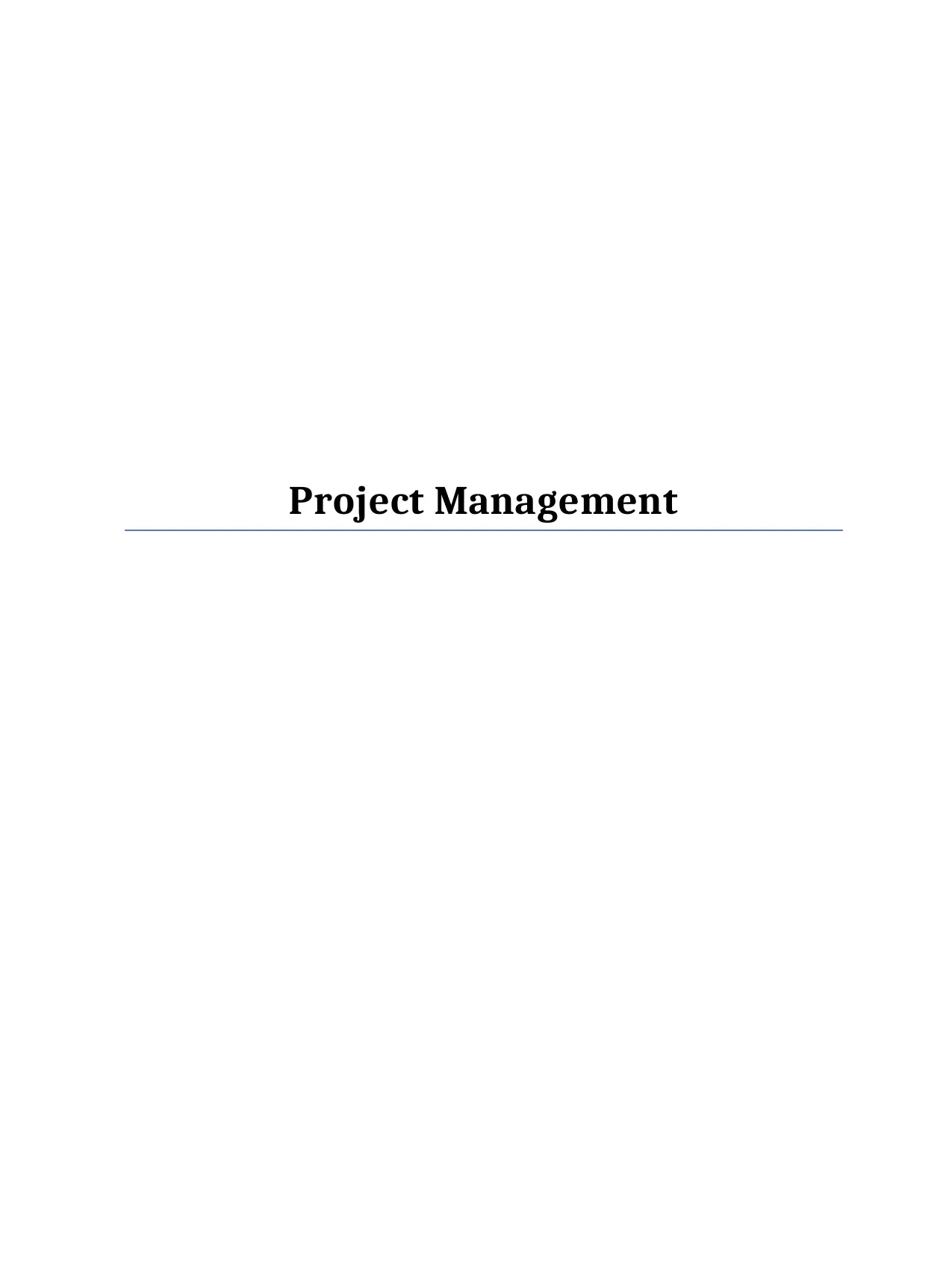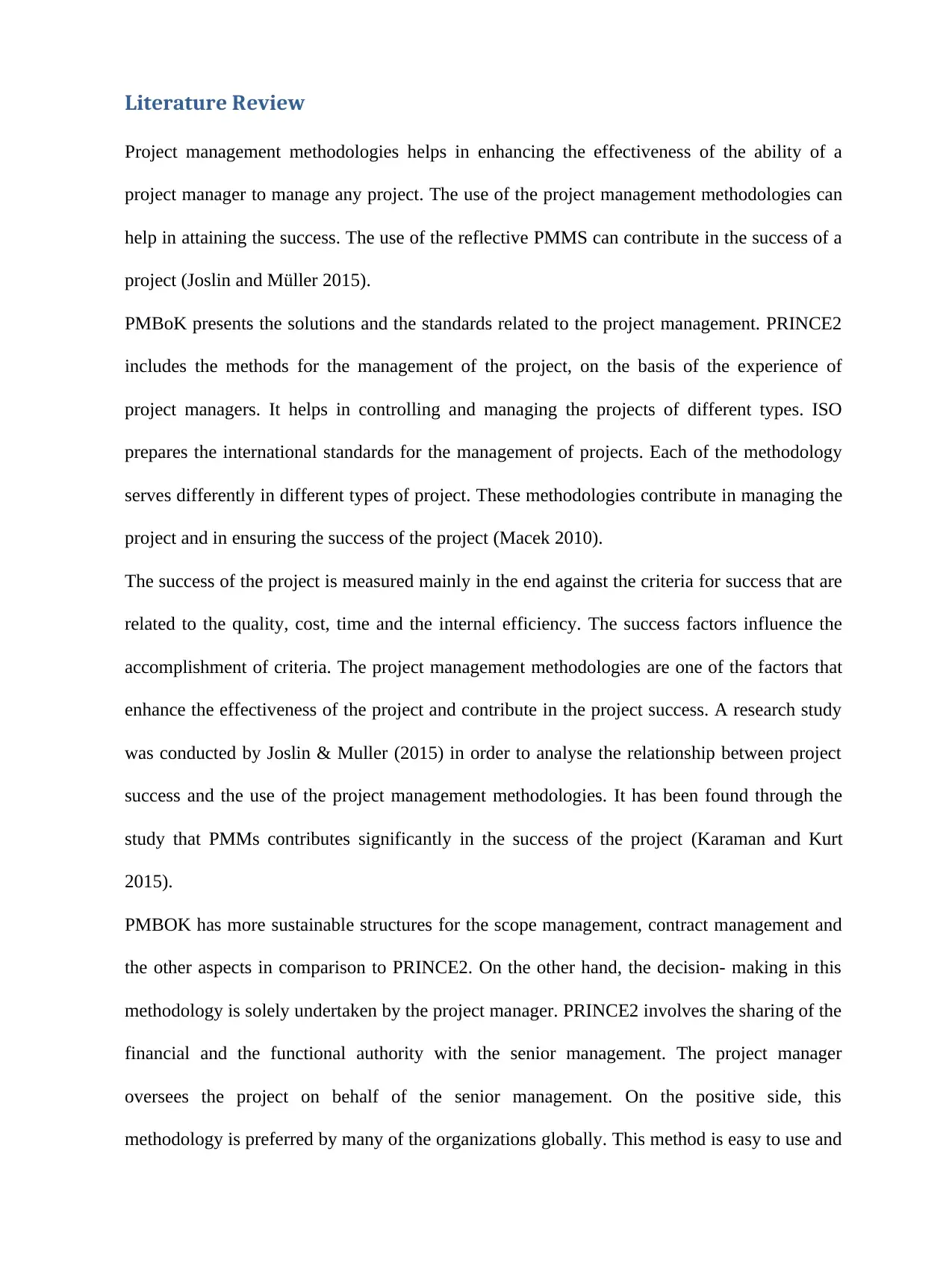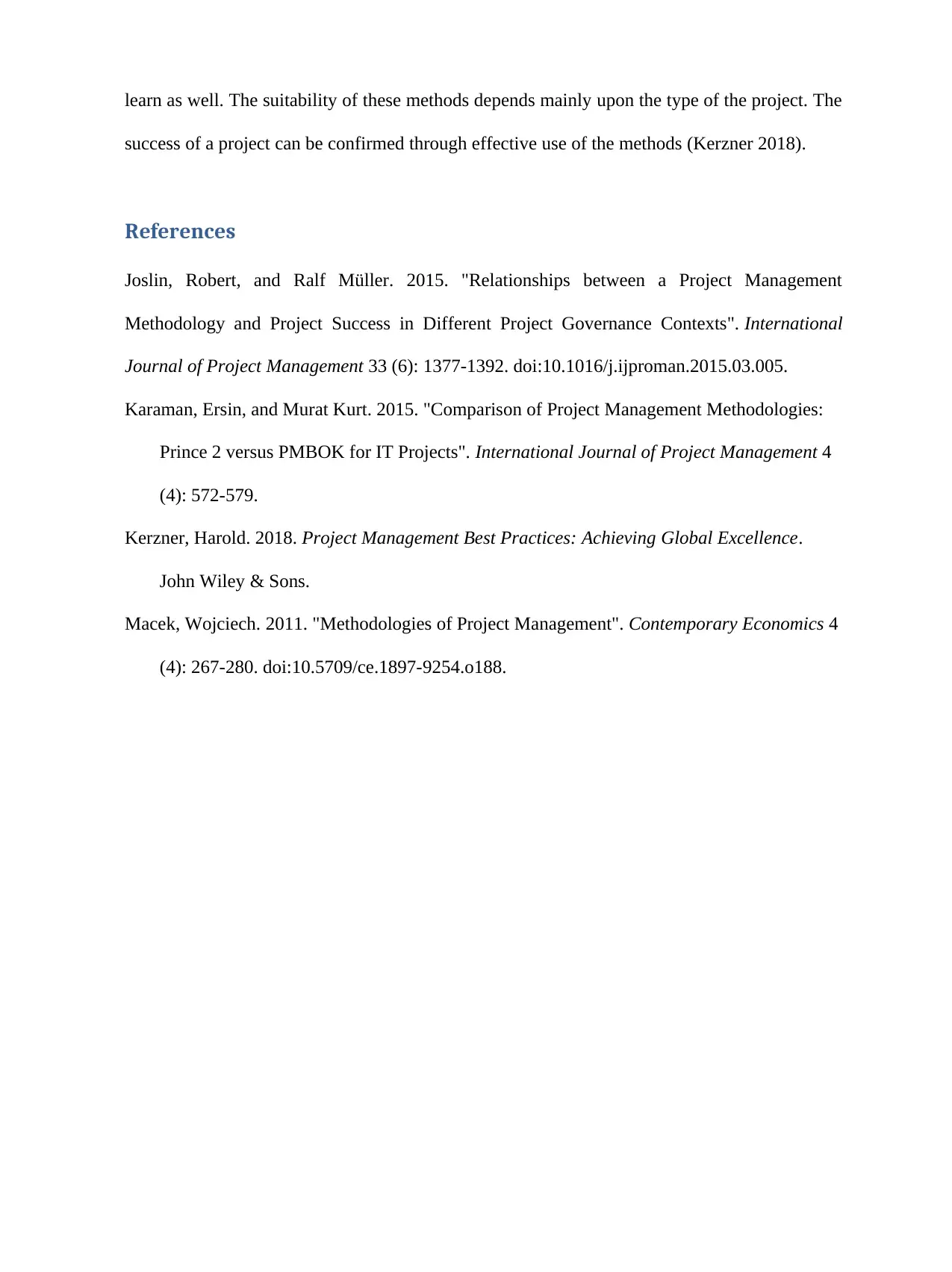Analyzing Project Management Methodologies and Impact on Success
VerifiedAdded on 2023/06/06
|3
|516
|66
Literature Review
AI Summary
This literature review examines the impact of project management methodologies (PMMs) on project success. It discusses methodologies such as PMBoK, PRINCE2, and ISO, highlighting their different approaches and suitability for various project types. The review emphasizes that PMMs contribute significantly to project success, measured against criteria like quality, cost, time, and internal efficiency. PMBOK offers robust structures for scope and contract management, while PRINCE2 promotes shared financial and functional authority with senior management. The suitability of each method depends on the project type, and effective implementation is crucial for achieving project success. Desklib provides access to this and other solved assignments.
1 out of 3










![[object Object]](/_next/static/media/star-bottom.7253800d.svg)